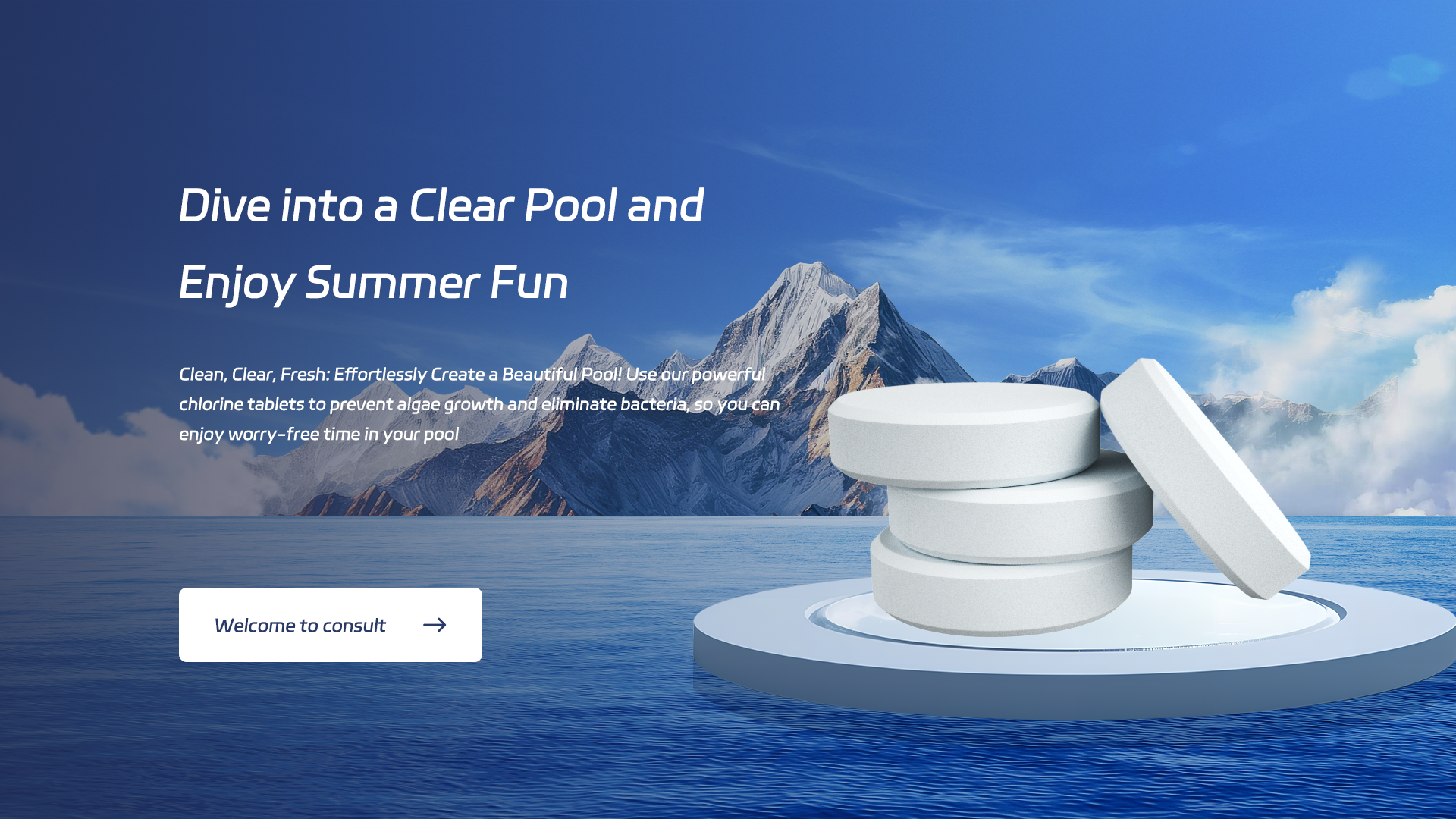How to Choose Low-Chlorine Formula Tablets for Home Pools?
Maintaining a clean and safe swimming pool is essential for every pool owner. Chlorine plays a key role in disinfecting pool water by killing bacteria and algae. However, many homeowners prefer using low-chlorine formula tablets to minimize the harsh effects of chlorine. Choosing the right pool chlorine tablets can improve water quality without causing skin irritation or damaging the environment. This article will guide you through selecting the best low-chlorine options for your home pool.
I. Why Opt for Low-Chlorine Formula Tablets?
Chlorine is a powerful sanitizer, but it often comes with side effects. Regular chlorine for pool can cause issues such as dry skin, red eyes, and a strong chlorine odor. Additionally, high chlorine levels may fade swimsuits and pool liners over time.
Using low-chlorine formula tablets reduces these risks. These tablets sanitize the water effectively while minimizing chemical exposure. They create a balanced environment, which is more comfortable for swimmers. Families with children or sensitive skin can especially benefit from low-chlorine alternatives.
II. How Low-Chlorine Tablets Differ from Regular Chlorine
Before selecting low-chlorine options, it is important to understand the difference between them and regular pool chlorine tablets. Standard tablets contain higher concentrations of chlorine, usually around 90% or more. Low-chlorine formula tablets, on the other hand, have reduced chlorine levels and may include additional ingredients for improved water balance.
Low-chlorine tablets often combine other sanitizing agents like bromine or mineral-based systems. These ingredients work alongside chlorine to keep the pool clean. Although they contain less chlorine for pools, they still maintain hygiene standards without being too harsh on swimmers or pool equipment.
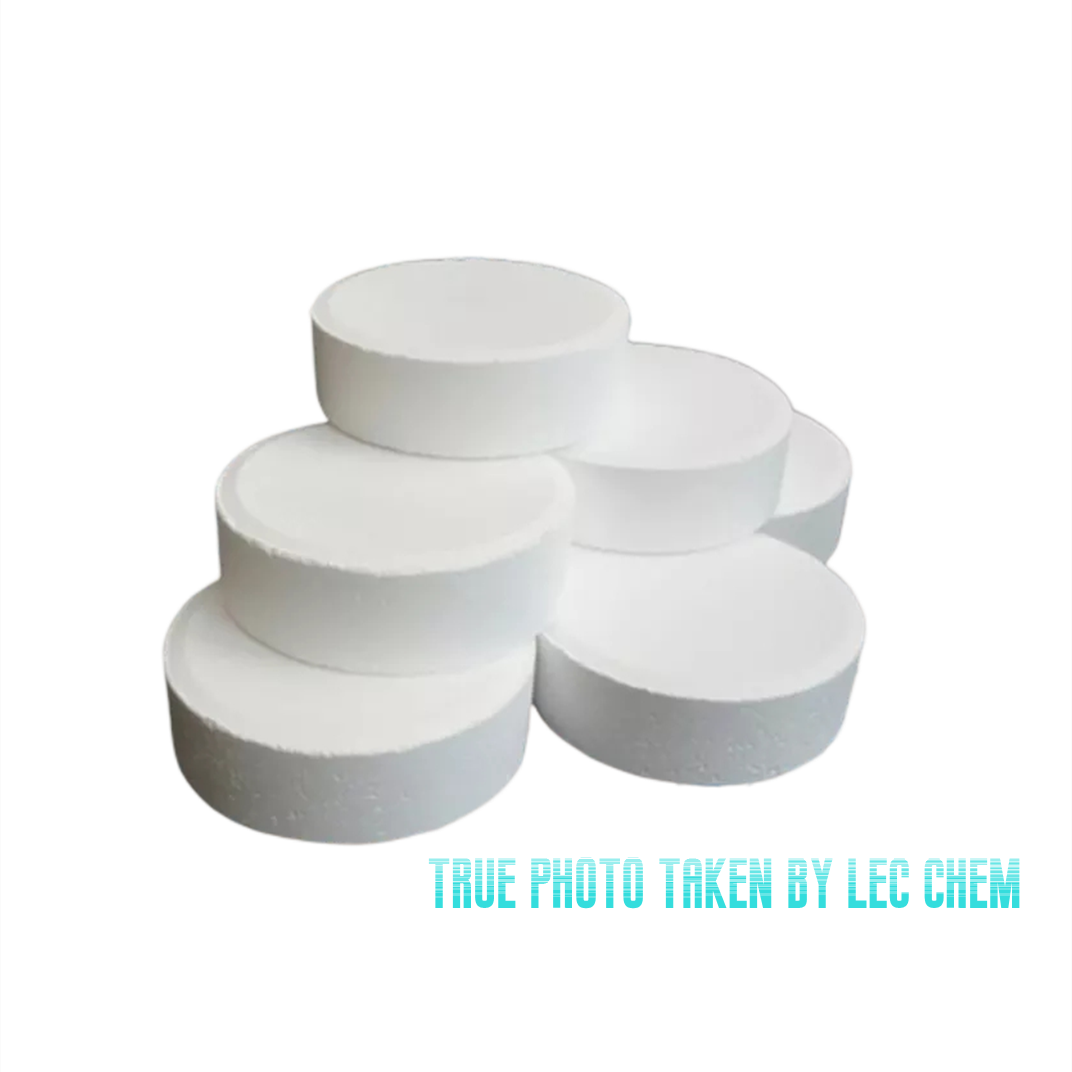
III. Benefits of Using Low-Chlorine Formula Tablets
There are several advantages to using low-chlorine formula tablets. First, they offer a gentler experience for swimmers. By reducing chlorine exposure, these tablets help prevent skin dryness and irritation. Families can swim comfortably without worrying about chlorine’s negative effects.
Another benefit is that low-chlorine tablets are better for the environment. They minimize chemical runoff, reducing the impact on local ecosystems. If you live in an area with frequent rain or have to drain your pool, low-chlorine tablets help protect nearby waterways.
Finally, low-chlorine pool chlorine tablets can extend the life of pool equipment and surfaces. Harsh chemicals may corrode metal fixtures and degrade vinyl liners. Low-chlorine options are gentler, helping preserve the quality of your pool for longer periods.
IV. Factors to Consider When Choosing Low-Chlorine Tablets
When selecting low-chlorine formula tablets, several factors should guide your decision. First, consider the size of your pool. Larger pools require more tablets to maintain proper sanitization. Ensure that the low-chlorine tablets you choose are suitable for the volume of water in your pool.
Next, think about the specific needs of your pool’s water. Different pools require different chlorine levels depending on their usage and exposure to sunlight. Pools that are used more frequently or exposed to direct sunlight may need slightly more chlorine for pools to remain sanitary. Look for low-chlorine tablets that still provide effective protection without over-chlorinating the water.
Finally, assess the pH balance and alkalinity of your pool water. Some low-chlorine pool chlorine tablets include stabilizers or buffers that help maintain pH levels. These additional ingredients can simplify pool maintenance by reducing the need for multiple chemicals.
V. Top Low-Chlorine Formula Tablet Options
There are several low-chlorine formula tablets available on the market. One popular choice is mineral-based chlorine tablets. These tablets combine minerals like copper or silver with low doses of chlorine to keep the pool water clean. The minerals work by disrupting the growth of bacteria and algae, allowing for a lower chlorine concentration.
Another option is bromine-based tablets. Bromine is a powerful sanitizer that works well in warm water, making it ideal for pools and spas. Bromine tablets release less odor than traditional chlorine for pools and are gentler on the skin. They provide a consistent level of sanitation, even with reduced chlorine content.
Some low-chlorine tablets also feature slow-release formulas. These tablets dissolve slowly, providing long-lasting sanitization with minimal chlorine. This type of tablet is convenient for homeowners who want to maintain a steady, low-chlorine level without frequent monitoring.
VI. Maintaining Your Pool with Low-Chlorine Tablets
Once you’ve selected your low-chlorine formula tablets, proper maintenance is essential to keep the water clean. First, follow the manufacturer’s instructions for dosage. Low-chlorine tablets usually require different quantities compared to regular pool chlorine tablets, so adjust accordingly.
Regularly check the chlorine levels in your pool using a test kit. Although low-chlorine tablets reduce overall chlorine, the levels should still be high enough to ensure sanitation. Keep chlorine levels between 1 to 3 parts per million (ppm) for optimal safety.
Monitor other aspects of your pool, such as pH levels and alkalinity. These factors influence the effectiveness of the chlorine for pools. Low-chlorine tablets that include stabilizers help maintain the right balance, but it’s important to check the water chemistry frequently to avoid issues like cloudy water or algae growth.
VII. Balancing Low-Chlorine with Other Pool Treatments
While low-chlorine formula tablets are effective, additional treatments may be necessary. Algaecides, clarifiers, and shock treatments can enhance water clarity and control algae. However, be mindful when using these chemicals, as some may interact with pool chlorine tablets. Always read product labels to ensure compatibility.
You may also need to adjust your pool’s filtration system to work with low-chlorine levels. Ensure that the filter runs for an adequate time each day to circulate the water effectively. A well-maintained filter supports the action of chlorine for pools, improving overall water quality.
VIII. Conclusion
Choosing the right low-chlorine formula tablets for your home pool can enhance both safety and comfort. These tablets provide a gentle yet effective way to sanitize your pool without the harsh side effects of traditional pool chlorine tablets. By considering factors like pool size, water chemistry, and the specific needs of your pool, you can find the ideal low-chlorine option that suits your lifestyle.
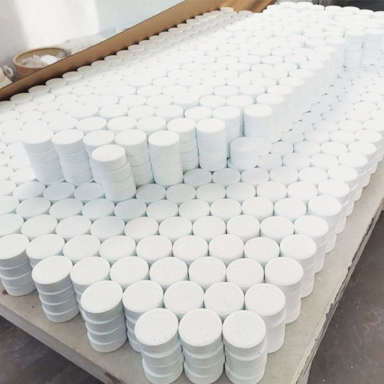 How Soon Can You Swim After Ad
How Soon Can You Swim After Ad
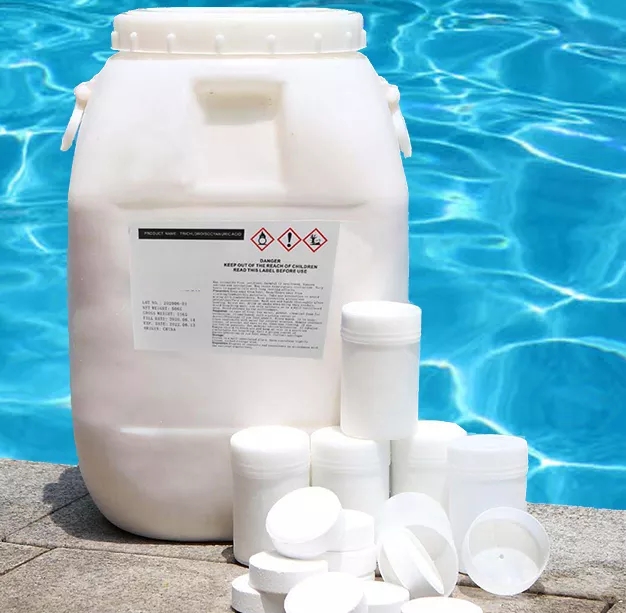 How Many Chlorine Tablets for
How Many Chlorine Tablets for
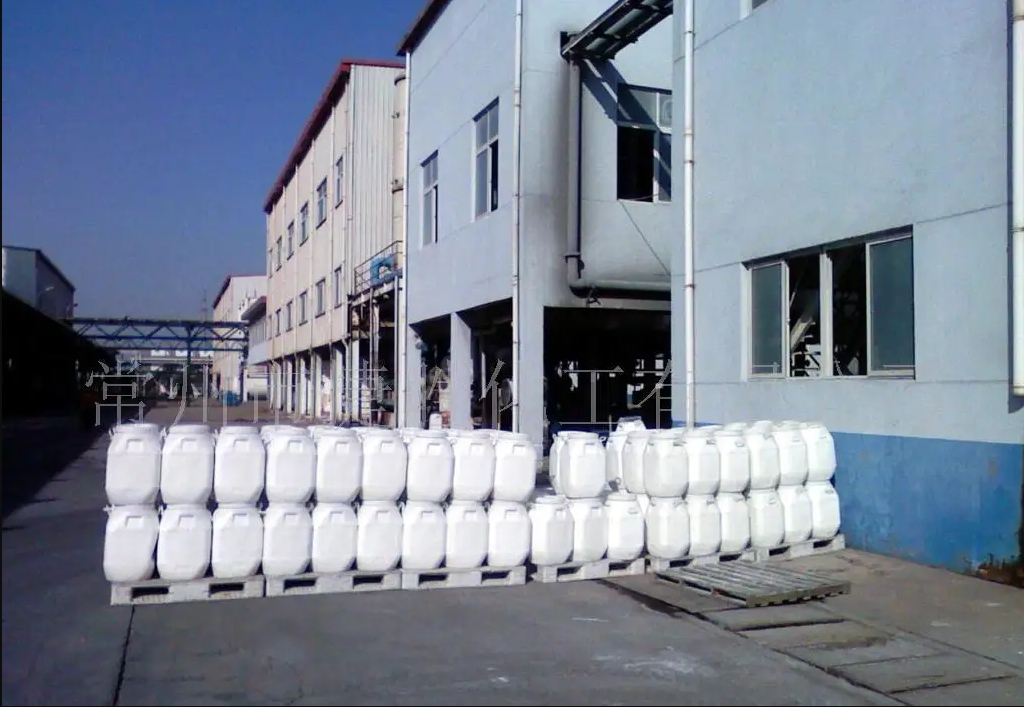 Largest China Factory Manufact
Largest China Factory Manufact
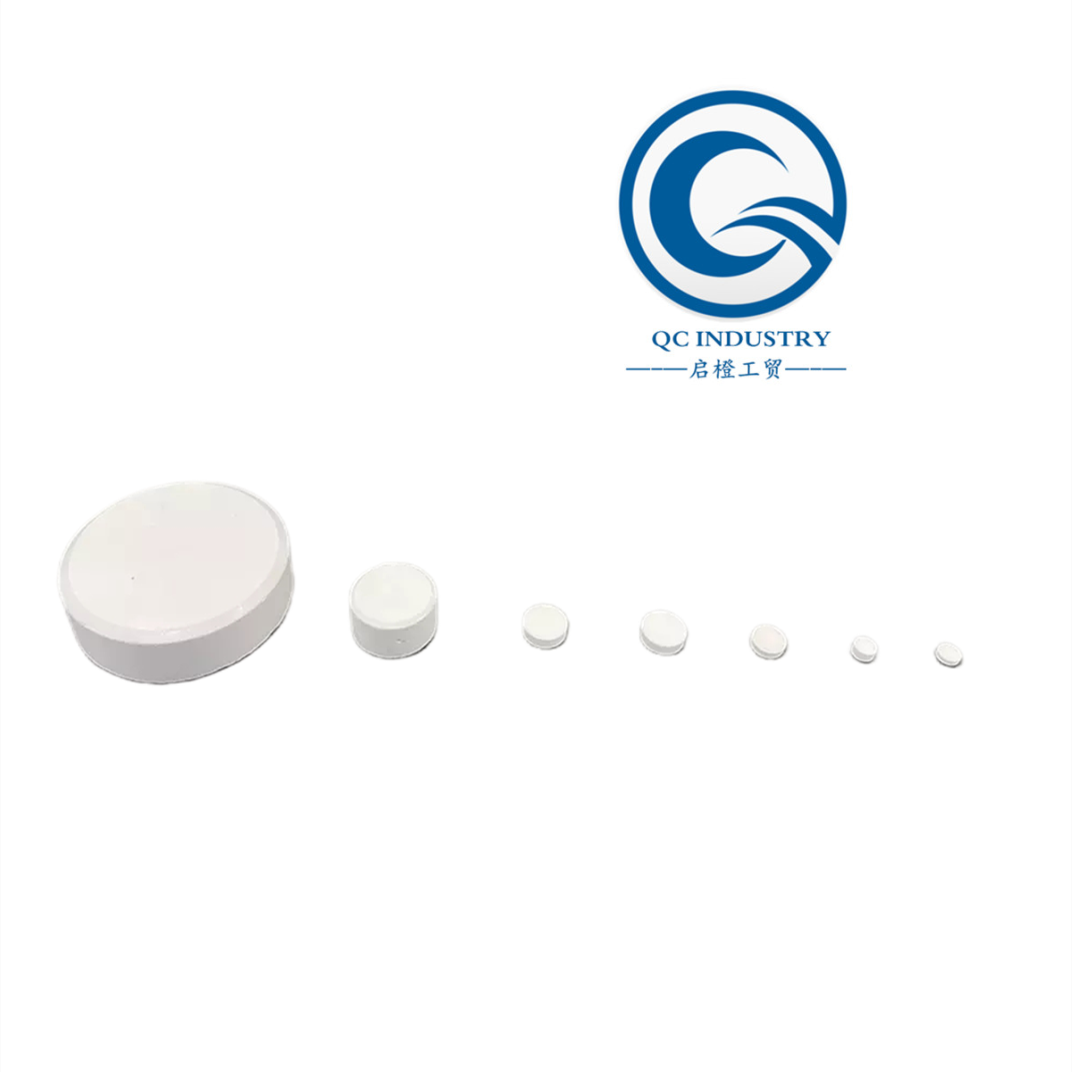 Cheap but Good Chlorine Tablet
Cheap but Good Chlorine Tablet

